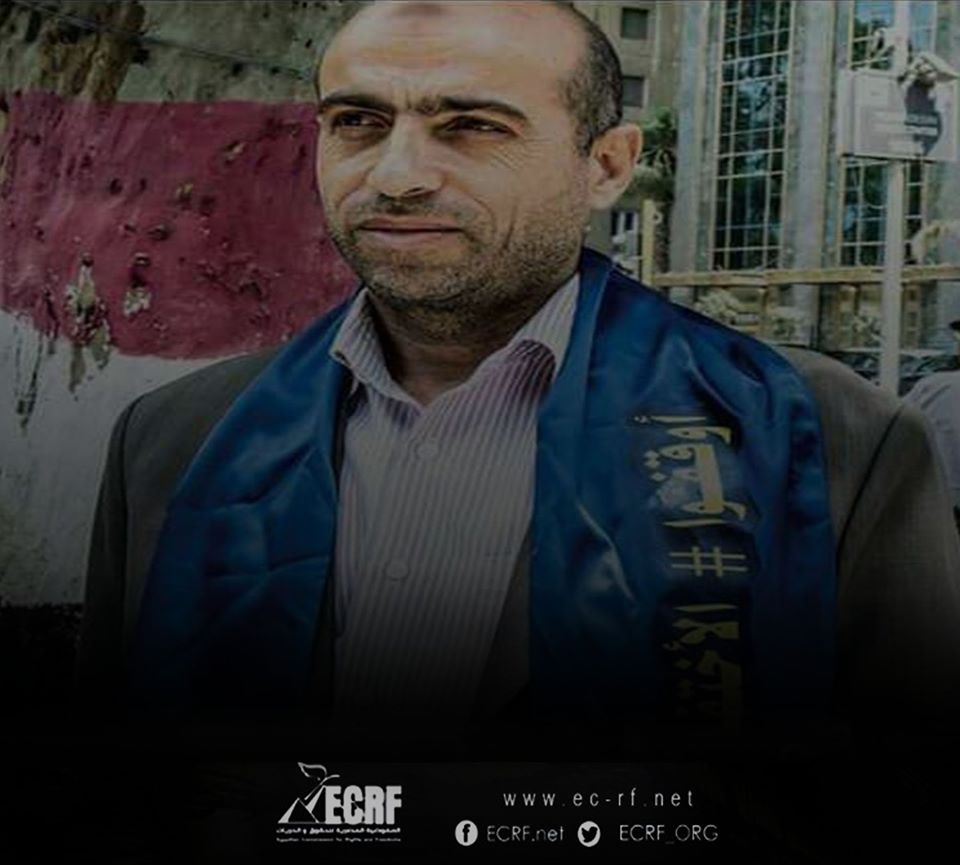Breaking
ECRF lawyer files lawsuit before the State Council, representing lawyer and HRD, Ibrahim Metwally, demanding authorities to form an inspection committee to visit prisons to ensure preventive measures are being taken and the safety of prisoners.
The lawsuit is filed against the Minister of Interior, the head of the National Council for Human Rights demanding an insurance of the availability of cleaning and sanitizing material as well as good ventilation.
The lawsuit was filed by ECRF lawyer upon the request of Abdelmoneim Ibrahim son of detained lawyer Ibrahim Metwally, against the Minister of Interior and the head of the National Council for Human Rights in their professional capacities concerning prison conditions of remand detainees.
The lawsuit, which carried the number 41553/74 administrative judiciary, demanded the formation of a committee consist of members of the National Council for Human Rights and professors of medicine to inspect the Tora prison complex as well as cancellation of the negative decision of the minister of interior’ refusal to disclose safety measures undertaken for the protection of remand detainees.
The lawyer also demanded an inspection of prison staff and officers, especially concerning preventive safety measures taken by prison administration to provide protection to prisoners especially those in Tora High Security Prison II, where lawyer Ibrahim Metwally is being currently held, and to ensure the availability of hygiene products and adequate ventilation, as well as enable the committee formed of members of the National Council for Human Rights to examine him and ensure that preventive and medical measures are taken within prison
It is noteworthy that lawyer Ibrahim Metwally, 57 years old, held in remand in State Security case no. 1470/2019 in Tora Hight Security Prison II of the Tora prison complex had been previously accused and held in remand in case no. 900/2017 and remained in detention for more than two years until the court ordered his release, but he was accused in a new case and remained in prison.
Since March 9, 2020, when the Minister of the Interior issued a decision, to suspend visits in prisons for a period of ten days, and then on March 19, 2020, issued a decision to continue suspending visits in all prisons, until the end of March, visits have been suspended until now, as part of the procedures and precautionary measures taken by the government to confront the novel “Corona” virus, regarding suspending all activities that include any large gatherings of citizens in accordance with the decision of the Prime Minister No. 719 of 2020 in this regard.
However, since the issuance of these decisions to prevent visits, which led to the lack of communication with the prisoners and reassurance of their relatives, there was also a refusal to admit food and medicines in some prisons, as well as money. Some prisons published bank account numbers for families to deposit money for their relatives in their full names to the great grandfather. The objective of those decisions was to turn prisons into health quarantines for prisoners which is contrary to reality since prisons remain open for its staff, both civilian and officers, in addition to the transfer of some prisoners to attend court or prosecution sessions for the renewal of their detention and then later their return to this places of detention.
Since the decision by the Minister of Interior was not accompanied by any explanations or information concerning the safety procedures undertaken parallel to those decisions to protect remand prisoners as well as prison staff and officer, ECRF renews its demands which it had issued in a statement on the 17th of March, calling for urgent and drastic measures to reduce crowding in places of detention, prisons, and police stations to prevent transmission or spread of covid-19 epidemic to prisoners or detainees or members of the police in those places with the aim to preserve public health.
ECRF demanded five urgent measures:
1. Release of all prisoners of conscience held in remand in political cases or those deprived of their freedom for exercising their constitutional and fundamental rights to freedom of opinion and expression and peaceful gathering and formation of association and defense of human rights, as well as cancel precautionary measures against them.
2. Release of remand prisoners held for criminal charges not related to exercise of rights and freedoms since a defendant is innocent until proven guilty and for preserving public health which constitutes public interest
3. Wider use of release for medical reasons and conditional release of other prisoners who have been deprived of their freedoms on grounds of criminal charges not related to exercise of rights and freedoms and consideration of the use of preventive restraining measures
4. Release of prisoners held for criminal charges not related to the exercise of rights and freedoms among the elderly and the ill who are the most vulnerable to the complications of Covid-19 infection, with possible resort to preventive restrictive measures, such as limiting mobility to treatment only
5. Providing hygienic and preventive items to prisoners and members of the police force working in prisons and police stations and improving health conditions in place of detention for the sake of prevention of disease and allowing prison visits while taking the necessary measures to prevent spread of infection.
Court and Prosecution Records
Egyptian Commission for Rights and Freedoms

